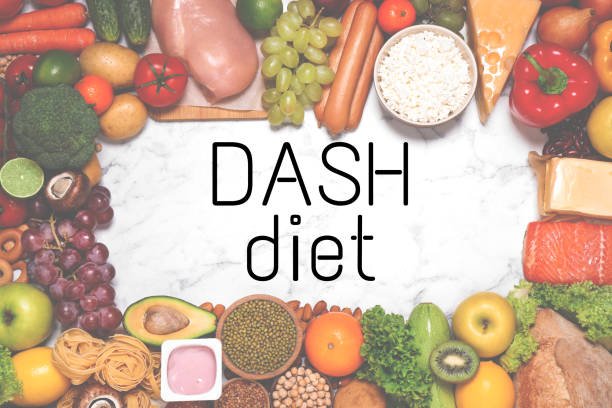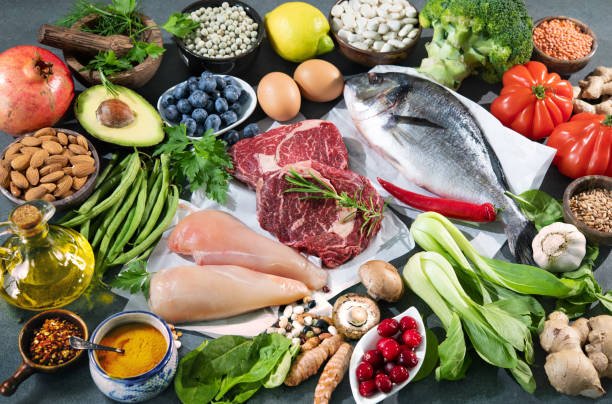
Welcome to the journey of unraveling the secrets of a healthy eating pattern! In a world flooded with dietary advice, understanding the boundaries of a balanced diet is essential for optimal well-being. This guide will explore not only what constitutes a healthy eating pattern but, more importantly, shed light on which of the following items a healthy eating pattern limits.
Which of the Following Items Does a Healthy Eating Pattern Limit?
The Vegan Diet: A Compassionate and Sustainable Lifestyle Choice
The vegan diet is not just a dietary preference but a comprehensive lifestyle choice with profound implications for health, animal welfare, and the environment. Veganism is the practice of abstaining from all animal-derived products, including meat, dairy, eggs, and even non-food items like leather and fur. This diet has gained popularity in recent years, driven by a growing awareness of the ethical, environmental, and health-related consequences of animal agriculture. In this article, we will explore the principles, benefits, and potential challenges associated with the vegan diet.
The Principles of Veganism
Vegans adhere to a set of principles and values that guide their dietary choices and extend into other aspects of their lives:
1. Compassion for Animals:
The fundamental principle of veganism is the avoidance of harm to animals. Vegans believe in the ethical treatment of all living beings and choose to abstain from animal products to reduce animal suffering.
2. Environmental Sustainability:
Many vegans are motivated by concerns about the environmental impact of animal agriculture. Livestock farming contributes significantly to greenhouse gas emissions, deforestation, and water pollution. By avoiding animal products, vegans aim to reduce their carbon footprint.
3. Health and Well-being:
Veganism is also embraced for its potential health benefits. A well-balanced vegan diet can be rich in fruits, vegetables, whole grains, nuts, and seeds, which are associated with a reduced risk of chronic diseases like heart disease, diabetes, and certain cancers.
Key Components of the Vegan Diet
The vegan diet primarily consists of plant-based foods, and a balanced vegan diet typically includes the following components:
1. Fruits and Vegetables:
Fruits and vegetables are at the core of the vegan diet. They provide essential vitamins, minerals, fiber, and antioxidants. A diverse and colorful array of fruits and vegetables is key to obtaining a wide range of nutrients.
2. Legumes:
Legumes like beans, lentils, and chickpeas are excellent sources of plant-based protein, fiber, and various vitamins and minerals. They are staples in vegan cooking.
3. Whole Grains:
Whole grains such as brown rice, quinoa, whole wheat, and oats provide complex carbohydrates and fiber, offering sustained energy and promoting digestive health.
4. Nuts and Seeds:
Almonds, walnuts, chia seeds, flaxseeds, and other nuts and seeds are rich in healthy fats, protein, and essential nutrients.
5. Plant-Based Protein Sources:
Tofu, tempeh, seitan, and plant-based meat substitutes like Beyond Meat and Impossible Foods products are common protein sources for vegans.
6. Dairy Alternatives:
Vegans substitute traditional dairy products with plant-based alternatives like almond milk, soy milk, coconut yogurt, and vegan cheese.
7. Healthy Fats:
Avocado, olive oil, and coconut oil are used for cooking and adding healthy fats to the diet.
8. B12 Supplements:
Vegans may need to take vitamin B12 supplements, as this essential nutrient is primarily found in animal products.
9. Fortified Foods:
Vegans often consume fortified foods, including plant-based milk and cereals, to ensure they get adequate nutrients like calcium and vitamin D.
10. Variety of Herbs and Spices:
Herbs and spices are used to add flavor and depth to vegan dishes.
Benefits of the Vegan Diet
The vegan diet offers a range of benefits, touching on health, animal welfare, and the environment:
1. Improved Heart Health:
A well-balanced vegan diet can be low in saturated fat and cholesterol, leading to a reduced risk of heart disease. Plant-based diets are associated with lower blood pressure and healthier cholesterol levels.
2. Weight Management:
Vegans often have a lower body mass index (BMI) and are less likely to be overweight or obese. This can lead to better weight management and a lower risk of obesity-related conditions.
3. Reduced Risk of Chronic Diseases:
A vegan diet can reduce the risk of chronic diseases, including type 2 diabetes and certain types of cancer. The high fiber content in plant-based foods is believed to contribute to these benefits.
4. Ethical Considerations:
Vegans take a stand against the exploitation of animals for food and other purposes, aligning their choices with compassion for all living beings.
5. Environmental Impact:
By avoiding animal agriculture, vegans contribute to reducing greenhouse gas emissions, conserving natural resources, and mitigating deforestation.
6. Sustainable and Cruelty-Free Lifestyle:
Vegans embrace a lifestyle that aligns with their values, promoting sustainability and cruelty-free practices.
Challenges and Considerations
While the vegan diet offers numerous benefits, there are some challenges and considerations to keep in mind:
1. Nutritional Adequacy:
A vegan diet requires careful planning to ensure adequate intake of essential nutrients, such as vitamin B12, iron, calcium, and omega-3 fatty acids. A registered dietitian can help address these concerns.
2. Protein Sources:
Vegans must find suitable plant-based protein sources to meet their protein requirements. Legumes, tofu, and tempeh are common choices.
3. Social and Cultural Considerations:
Being vegan may present challenges in social settings and when dining out. It can require additional effort to find vegan-friendly options.
4. Transition Period:
Transitioning to a vegan diet may require adjustments and experimentation to find satisfying and balanced meals.
Conclusion
The vegan diet is more than just a dietary choice; it’s a way of life that reflects values of compassion for animals, environmental sustainability, and personal health. It can provide a wide range of health benefits and contribute to a more sustainable and ethical world. However, it’s important to approach veganism with knowledge and planning to ensure a nutritionally balanced and satisfying diet. Consultation with a registered dietitian or nutritionist can be invaluable in making the transition to a vegan lifestyle and maintaining it in a healthy and sustainable way.
In conclusion, understanding which of the following items a healthy eating pattern limits is a pivotal step toward cultivating a lifestyle that promotes overall well-being. By setting boundaries on sugars, saturated fats, processed and red meats, sodium, and refined carbohydrates, individuals pave the way for sustained health and vitality.
As you embark on your journey to adopt a healthy eating pattern, remember that balance and moderation are key. Embrace the diversity of nutrient-dense foods, savor the joy of mindful eating, and celebrate the flexibility that allows for occasional indulgences. Seek professional guidance when needed, customize your approach based on individual needs, and make informed choices that align with your health goals.
Nourishing well is not just a journey; it’s a lifelong commitment to yourself. May your path be filled with delicious, nutritious choices that contribute to a vibrant and thriving life.







I抳e recently started a web site, the info you offer on this website has helped me tremendously. Thanks for all of your time & work.
I have read several good stuff here. Definitely worth bookmarking for revisiting. I surprise how much effort you set to create such a fantastic informative web site.
Thanks for discussing your ideas. A very important factor is that college students have a solution between national student loan as well as a private student loan where it truly is easier to select student loan consolidation than over the federal student loan.
Its like you read my mind! You appear to know a lot about this, like you wrote the book in it or something. I think that you could do with a few pics to drive the message home a bit, but other than that, this is magnificent blog. A fantastic read. I’ll definitely be back.
Thanks for sharing. I read many of your blog posts, cool, your blog is very good.
I liked up to you will receive carried out proper here. The caricature is tasteful, your authored subject matter stylish. nonetheless, you command get bought an edginess over that you wish be turning in the following. unwell undoubtedly come further until now again as precisely the similar just about a lot often within case you shield this increase.
I think other site proprietors should take this site as an model, very clean and magnificent user genial style and design, as well as the content. You are an expert in this topic!